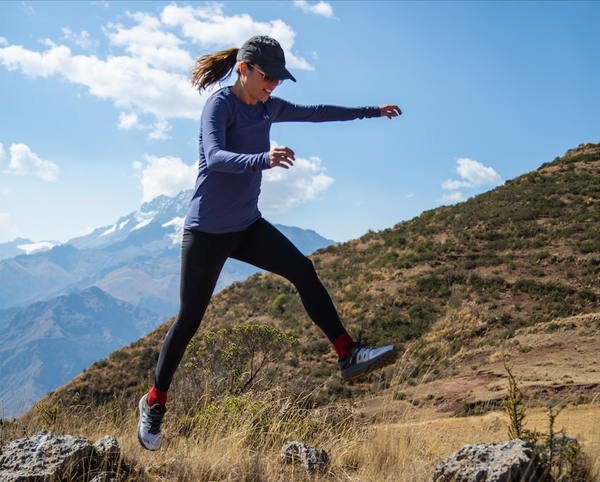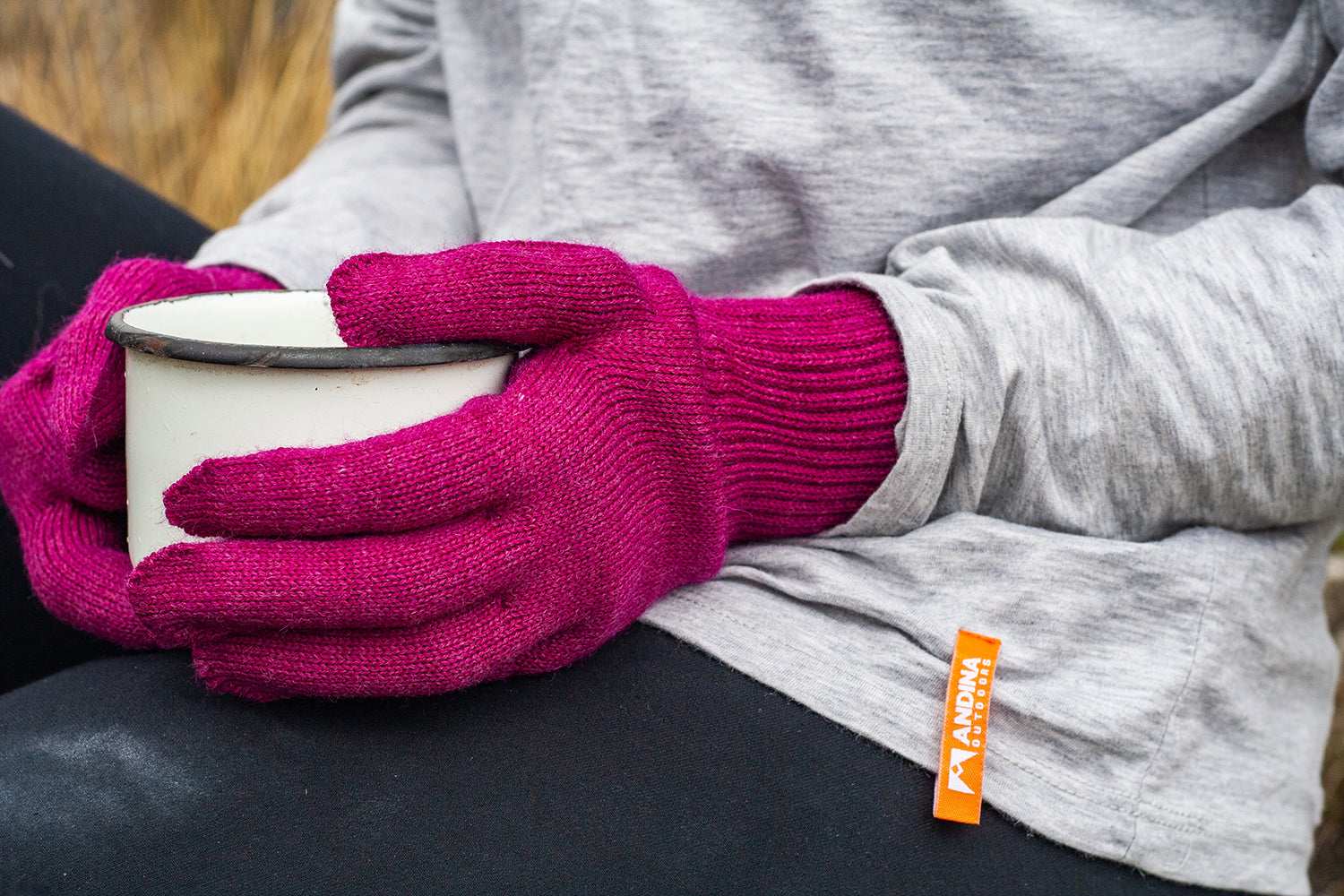For outdoor enthusiasts, choosing the right hiking socks is just as important as picking the perfect boots. The right pair can prevent blisters, regulate temperature, and keep your feet comfortable mile after mile. While merino wool has long been the go-to choice for hiking socks, alpaca wool is emerging as a superior alternative with unique advantages. But which one is best for you?
In this guide, we’ll compare merino vs alpaca hiking socks, breaking down their warmth, softness, durability, and overall performance in real-world conditions. If you’re looking for the best wool for hiking socks, read on to discover which fiber will serve you best on your next outdoor adventure.

Key Differences Between Alpaca Wool and Merino Wool
Both alpaca and merino wool are premium natural fibers, offering excellent performance in outdoor conditions. However, their unique properties make them suitable for different needs. Here's a detailed breakdown:
| Property | Alpaca Wool | Merino Wool |
|---|---|---|
| Fiber Diameter | 15-36 microns (Baby Alpaca: ~18 microns) | 18-24 microns (finer than regular wool) |
| Warmth | Superior – Hollow-core fiber traps heat better | High – Solid fiber retains warmth |
| Softness | Silky, smooth, non-itchy | Soft and plush, but can feel itchy for sensitive skin |
| Durability | Stronger, more resistant to pilling & wear | Good, but prone to thinning over time |
| Moisture-Wicking | Exceptional – Absorbs less moisture, stays dry | Excellent – Absorbs moisture but dries quickly |
| Hypoallergenic | Yes – No lanolin, ideal for sensitive skin | No – Contains lanolin, potential allergen |
| Sustainability | More eco-friendly, gentle on the environment | Requires more resources to produce |
Understanding these differences is key when selecting the most durable natural wool socks for your hikes.

Which is Warmer: Alpaca or Merino?
If you’re braving cold mountain trails, thermal insulation is a top priority. So, which is warmer: alpaca or merino?
Alpaca wool has a semi-hollow fiber structure, allowing it to trap more heat without adding bulk. This makes it ideal for thermal insulation hiking socks, keeping your feet warm in extreme conditions. While merino wool is also a great insulator, its solid fibers don’t retain heat as efficiently as alpaca’s, meaning you may need thicker socks to achieve the same level of warmth.
For ultimate warmth in frigid climates, alpaca wool vs merino wool—alpaca wins.

Softest Wool for Hiking Socks: Comfort Matters
Comfort is non-negotiable when you're trekking for hours. If you’re after the softest wool for hiking socks, both fibers offer a plush feel, but alpaca has the edge.
Unlike merino, alpaca fibers lack microscopic scales, making them incredibly smooth against the skin. This reduces itchiness and irritation, making alpaca hiking socks perfect for those with sensitive feet or skin conditions.
If you often find yourself adjusting your socks due to discomfort, alpaca wool may be the game-changer you need.

Most Durable Natural Wool Socks: Which Lasts Longer?
Hiking socks take a beating on the trail, so durability is crucial. Which wool stands the test of time?
Alpaca fibers are naturally stronger and more resistant to wear than merino. They don’t pill as quickly and maintain their structure even after multiple washes. Merino wool socks, while durable, tend to thin out faster over time, especially with frequent use.

If longevity is what you need, alpaca hiking socks are the best choice for durable hiking socks for trekking. They’ll last longer, meaning you’ll replace them less often—a win for your wallet and the environment.
Moisture-Wicking Performance: Keeping Feet Dry
Sweaty feet can lead to blisters, so moisture management is a must. Both merino and alpaca excel at moisture-wicking wool socks, but alpaca has a clear advantage—it absorbs less moisture and dries even faster.
This means your feet stay drier for longer, reducing the risk of discomfort and odor. If you’re hiking in humid or wet conditions, alpaca’s superior moisture control can help prevent that dreaded soggy sock feeling.
For outdoor adventure performance socks, alpaca wool is the superior choice for moisture control.

Hypoallergenic Wool Socks Comparison: Ideal for Sensitive Skin
If you have sensitive skin or wool allergies, alpaca wool is the safest bet. Unlike merino, which contains lanolin, alpaca wool is completely lanolin-free, making it naturally hypoallergenic.
For hikers prone to itching, redness, or allergic reactions, alpaca wins in the hypoallergenic wool socks comparison.

Sustainability: Which Wool is More Eco-Friendly?
Choosing sustainable hiking gear materials is more important than ever. Here’s how these two fibers compare:
- Alpacas are gentle grazers, requiring less water and causing less environmental degradation.
- Merino sheep require more land and resources, leading to a higher environmental impact.
For eco-conscious hikers, alpaca wool is the greener choice, making it the best luxury wool for hiking gear.

Best Luxury Wool for Hiking Gear: The Verdict
Both merino and alpaca wool have their strengths, but if you're looking for the best wool for hiking socks, alpaca is the superior option. It offers better warmth, superior softness, higher durability, and better moisture management, making it ideal for serious hikers and outdoor adventurers.
Ready to Experience the Difference?
Upgrade your hiking gear with premium alpaca wool socks and enjoy superior comfort, durability, and sustainability. Explore our collection at Andina Outdoors and step into the future of outdoor performance!


